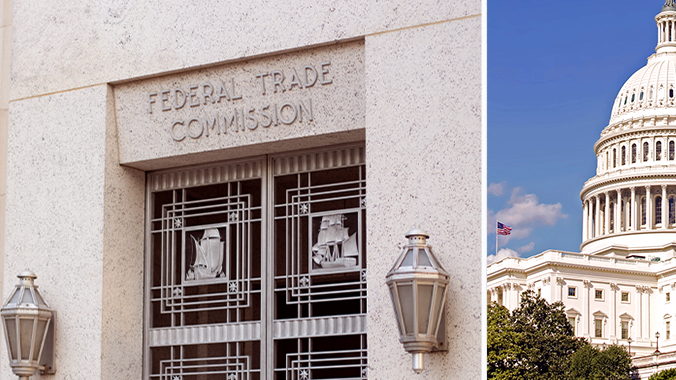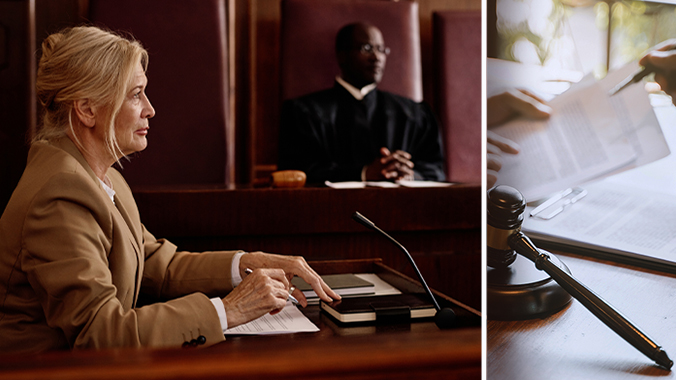How to Take Winning Depositions in Cases Involving Parental Alienation (Part 1)

Ashish Joshi is the owner and managing partner of Joshi: Attorneys + Counselors. He serves as the lead counsel in high-stakes, complex family law and divorce cases, focusing on issues related to intimate partner violence, parental alienation, child psychological maltreatment, and international child abduction.
On-Demand: December 5, 2024
2 hour CLE
Tuition: $195.00
Co-Sponsored by myLawCLE
Get this course, plus over 1,000+ of live webinars.
Learn More
Training 5 or more people?
Sign-up for a law firm subscription plan and each attorney in the firm receives free access to all CLE Programs
Program Summary
Parental alienation is a highly counterintuitive area. Family law professionals—judges, lawyers, children’s representatives, guardian’s ad litem, custody evaluators — are often confounded when dealing with PA cases. Seemingly good measures that may have worked in other family law cases do not work in an alienation situation. For instance, as one domestic relations judge realized: Giving a “speech” from the bench to “get through” to an alienating parent does not result in an epiphany or help the situation. Nor will sending off the kids to “therapy.” But such therapies are known to be ineffective. Not only that, they are known to be potentially harmful – they “validate” an alienated child’s distorted view of the world, encourage the child to express grievances, and give the child some “control” or choice while advising the rejected parent to “listen, empathize, validate, and apologize (or even to ‘find something to apologize for’).” Traditional therapy is contraindicated and typically makes things worse. Even when provided under court order, such therapies are of little benefit.
In addition, some jurisdictions — e.g., Colorado and California — have recently passed legislation that limits the court’s options when it comes to ordering reunification counseling. What are the options when one is faced with legislative or other restraints on reunification options? What interventions work?
It all begins by ensuring that the fact finder — whether a trial judge or a forensic custody evaluator — reaches a finding of PA. Without such finding, a claim of PA is simply a theory in search of facts.
In this 2-part presentation, the attendees will learn about basics of the PA theory, how family courts across the United States have defined the term, what evidence have the courts found persuasive when making findings of PA, and how to put together an effective case of PA in litigation. It all begins with the process of discovery and taking strategic and effective depositions.
This course is co-sponsored with myLawCLE.
Key topics to be discussed:
- Fundamentals of PA
- How Family Courts have defined PA and what they have found to be persuasive evidence
- Relevant and recent legal cases
- Addressing mis and dis-information on PA in litigation
- Discovery process in PA cases
- Depositions
![]() Closed-captioning available
Closed-captioning available
Speakers
 Ashish Joshi | Joshi Attorneys + Counselors
Ashish Joshi | Joshi Attorneys + Counselors
Ashish Joshi is the owner and managing partner of Joshi: Attorneys + Counselors. He serves as the lead counsel in high-stakes, complex family law and divorce cases, focusing on issues related to intimate partner violence, parental alienation, child psychological maltreatment, and international child abduction. He has counseled and/or represented clients in state and federal courts across the United States and internationally, including in India, United Kingdom, Canada, Luxembourg, Hong Kong, British Virgin Islands, and China.
Mr. Joshi has been admitted to the Bar of the Supreme Court of the United States, state bars of New York, Michigan, the District of Columbia, and Gujarat, India. Mr. Joshi serves as a senior editor of Litigation, the flagship journal of the ABA’s Section of Litigation. He is a contributing author to Parental Alienation: Science and Law (Charles C. Thomas, 2020) and author of Litigating Parental Alienation: Evaluating and Presenting an Effective Case in Court (ABA, 2021).
In 2024, the Michigan Supreme Court appointed Mr. Joshi to serve on the Michigan Judicial Council.
Agenda
I. Fundamentals of PA | 2:00pm – 2:30pm
II. How the Family Courts have defined the term | 2:30pm – 3:00pm
Break | 3:00pm – 3:10pm
III. Relevant and current legal cases | 3:10pm – 3:40pm
IV. Evidence that courts have found to be persuasive when making a finding of PA | 3:40pm – 4:10pm
Credits
Alaska
Approved for CLE Credits
2 General
Alabama
Approved for CLE Credits
2 General
Arkansas
Approved for CLE Credits
2 General
Arizona
Approved for CLE Credits
2 General
California
Approved for CLE Credits
2 General
Colorado
Pending CLE Approval
2 General
Connecticut
Approved for CLE Credits
2 General
District of Columbia
No MCLE Required
2 General hours
Delaware
Pending CLE Approval
2 General
Florida
Approved via Attorney Submission
2.5 General Hours
Georgia
Approved for CLE Credits
2 General
Hawaii
Approved for CLE Credits
2.4 General
Iowa
Pending CLE Approval
2 General
Idaho
Pending CLE Approval
2 General
Illinois
Approved for CLE Credits
2 General
Indiana
Approved For On-Demand Credits
2 General
Kansas
Pending CLE Approval
2 Substantive
Kentucky
Pending CLE Approval
2 General
Louisiana
Pending CLE Approval
2 General
Massachusetts
No MCLE Required
2 General hours
Maryland
No MCLE Required
2 General hours
Maine
Pending CLE Approval
2 General
Michigan
No MCLE Required
2 General hours
Minnesota
Pending CLE Approval
2 General
Missouri
Approved for CLE Credits
2.4 General
Mississippi
Pending CLE Approval
2 General
Montana
Approved for Self-Study Credits
2 General
North Carolina
Pending CLE Approval
2 General
North Dakota
Approved for CLE Credits
2 General
Nebraska
Pending CLE Approval
2 General
New Hampshire
Approved for CLE Credits
120 General Minutes
New Jersey
Approved for CLE Credits
2.4 General
New Mexico
Approved for CLE Credits
2 General
Nevada
Approved for Self-Study Credits
2 General
New York
Approved for CLE Credits
2.4 General
Ohio
Approved for Self-Study Credits
2 General
Oklahoma
Approved for CLE Credits
2 General
Oregon
Approved for Self-Study Credits
2 General
Pennsylvania
Approved for CLE Credits
2 General
Rhode Island
Pending CLE Approval
2.5 General
South Carolina
Approved for CLE Credits
2 General
South Dakota
No MCLE Required
2 General hours
Tennessee
Approved for Self-Study Credits
2 General
Texas
Pending CLE Approval
2 General
Utah
Pending CLE Approval
2 General
Virginia
Not Eligible
2 General Hour(s)
Vermont
Approved for CLE Credits
2 General
Washington
Approved via Attorney Submission
2 Law and Legal Hours
Wisconsin
Approved for Self-Study Credits
2 General
West Virginia
Pending CLE Approval
2.4 General
Wyoming
Pending CLE Approval
2 General
Preview
More CLE Webinars
Trending CLE Webinars






Upcoming CLE Webinars



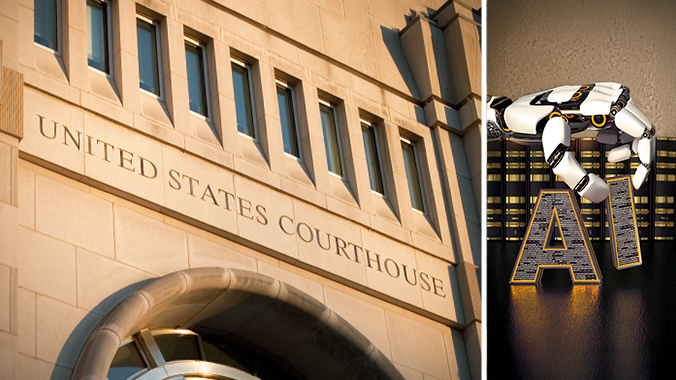




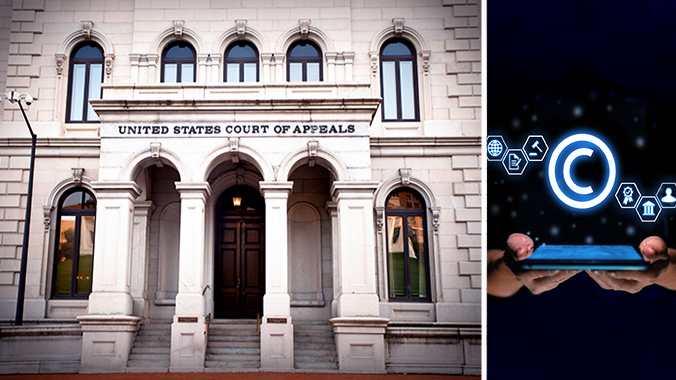









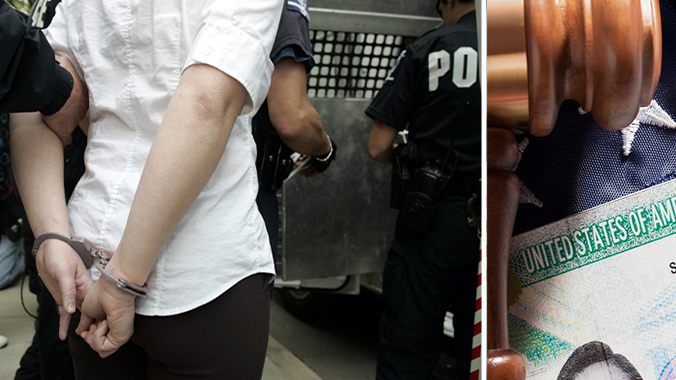









![5th Annual Tax Rep Summit [3-Day Event] (Presented by Tax Rep)](https://federalbarcle.org/wp-content/uploads/2025/10/Product_img_-5th-Annual-Tax-Rep-Summit.jpg)


